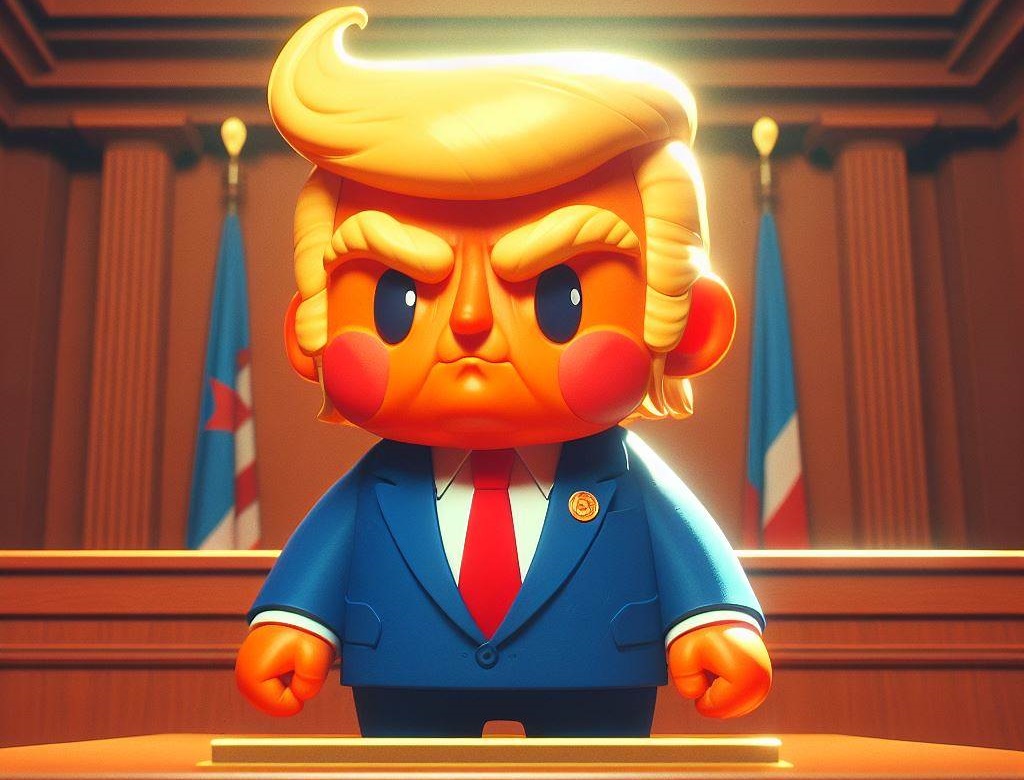Trump’s Immunity Shield Pierced: D.C. Appeals Court Greenlights Lawsuits
In a landmark ruling that reshapes the legal landscape, the federal appeals court in Washington, D.C., has declared that former President Donald Trump is not shielded by presidential immunity from civil lawsuits connected to the January 6, 2021, U.S. Capitol riot. This pivotal decision opens the floodgates for several pending cases against Trump in the D.C. federal court, all rooted in the events surrounding the 2020 election.
The Core of the Ruling
Authored by Chief Judge Sri Srinivasan, the court’s opinion is a masterclass in legal clarity. It draws a bold line: not all actions or statements made by a president while in office are immune from legal accountability. The essence here is the distinction between official presidential functions and personal, unofficial actions. When stepping outside the formal duties of the presidency, even a president becomes just another citizen, susceptible to civil suits.
Unanimity in Judgment
This unanimous decision by the three judges of the D.C. Circuit Court of Appeals—Judge Greg Katsas and Judge Judith Rogers alongside Srinivasan—signals a robust consensus. While Trump retains the right to further appeals, the immediate impact is clear: three lawsuits brought by Capitol Police officers and Democratic Congress members, seeking redress for emotional and physical harm from the Capitol attack, are now moving ahead. Moreover, this could reawaken at least half a dozen dormant lawsuits against Trump.
Wider Implications
This ruling, though specific to civil cases, may also influence how arguments of immunity in Trump’s federal criminal case related to the 2020 election are perceived. It’s a critical juncture, underscoring the nuanced differences between campaign rhetoric and official presidential actions.
The Plaintiffs’ Stance
The plaintiffs, including Democratic House members and Capitol Police officers, present a compelling narrative. They allege a conspiracy led by Trump to disrupt the congressional session certifying the 2020 presidential election. The argument: Trump should be held accountable for inciting the assaults.
Trump’s Defense and the Court’s Response
Trump’s legal team sought dismissal, citing presidential immunity. However, the D.C. District Court countered this, characterizing Trump’s actions leading to the Capitol riot as efforts to cling to power, rather than official presidential duties. The court did, however, grant Trump immunity regarding claims that he failed to stop the riot, an action they deemed within his presidential purview.
Looking Ahead: A Balanced View
The appeals court has crafted a balanced approach, recognizing that even campaign speech might sometimes fall under official duties. The decision leaves open whether Trump’s January 6 speech is immune, a question likely to be pivotal as these lawsuits advance into deeper fact-finding stages.
Reactions: From Trump’s Camp to the Plaintiffs
Trump’s spokesperson, Steven Cheung, branded the opinion as “limited, narrow, and procedural,” insisting Trump acted in the nation’s interest. Contrastingly, the plaintiffs’ lawyers hailed the decision as a significant step towards accountability and justice for the events of January 6, vowing to press forward with their claims in court.
A Stride Towards Accountability
In sum, this ruling represents a critical moment in American jurisprudence. It’s a stride towards ensuring that those at the highest echelons of power are not beyond the reach of the law, particularly when the stakes involve the very bedrock of American democracy.






